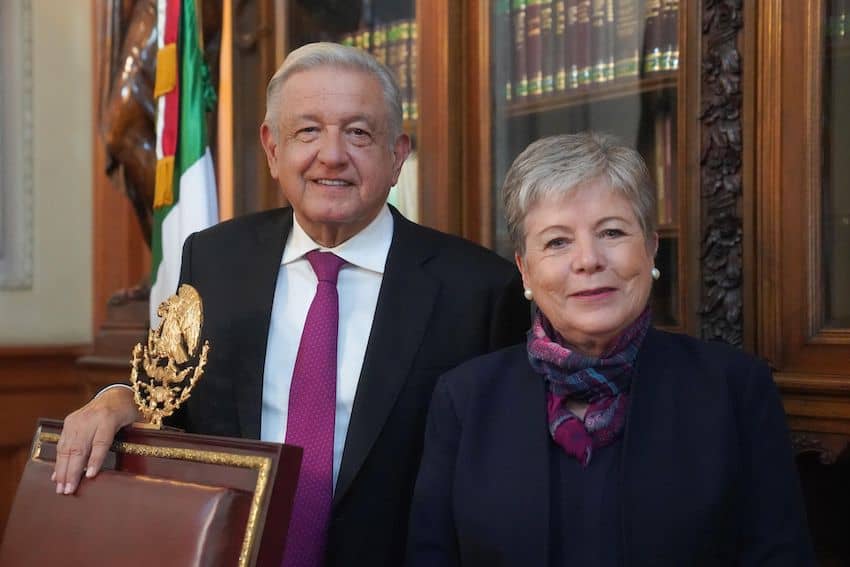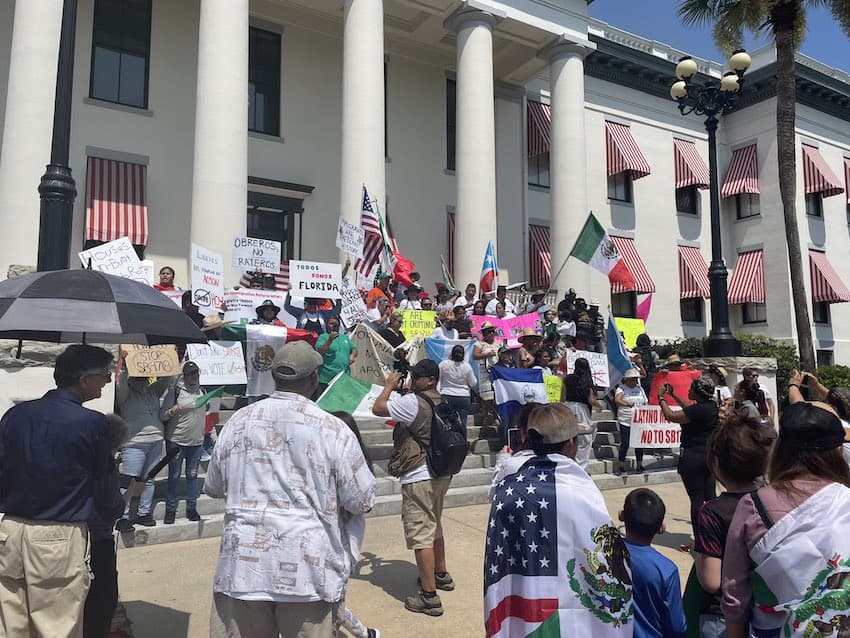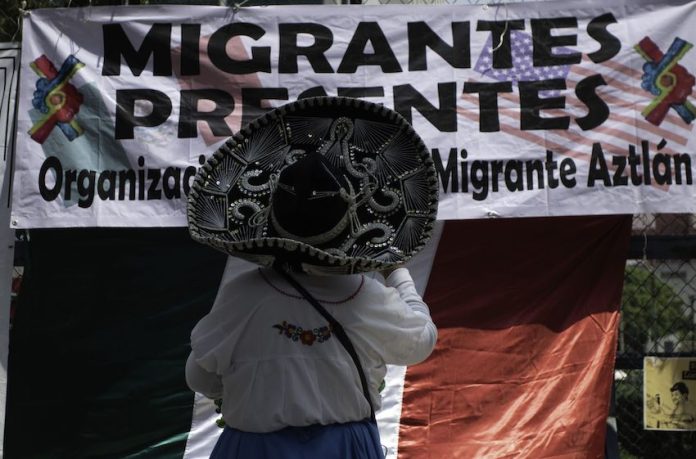Mexico has expressed its opposition to recently enacted laws in the U.S. states of Florida and Kansas due to their potential impact on Mexican migrants.
In two separate statements, the Ministry of Foreign Affairs (SRE) said that the federal government disapproves of the immigration law that took effect in Florida on July 1 and the human smuggling law that went into force in Kansas on the same day.

The former law makes using the Department of Homeland Security website E-Verify “mandatory for any employer with 25 or more employees, imposes enforceable penalties for those employing illegal aliens, and enhances penalties for human smuggling,” according to a statement on the website of Governor Ron DeSantis, who signed the legislation in May.
It also “prohibits local governments from issuing Identification Cards (ID) to illegal aliens, invalidates ID cards issued to illegal aliens in other states, and requires hospitals to collect and submit data on the costs of providing health care to illegal aliens,” among other measures.
The SRE said that Mexican consulates in Miami and Orlando, “on behalf of the government of Mexico, express the government’s repudiation of measures that lead to acts of discrimination and racial profiling.”
The statement said that the federal government respects the “processes and measures taken by state legislatures” in the United States but believes that the new law “will affect the human rights of thousands of Mexicans, including children, and will exacerbate hostile environments, which may lead to hate crimes and acts against the migrant community.”

“The measure does not reflect the migrants’ valuable contribution to the economy, society and culture of Florida and the country,” the SRE added.
The ministry also said that “criminalization is not the way to solve the issue of undocumented immigration” and asserted that the measures in the law are inspired by “xenophobic and white nationalist sentiments.”
“Policies such as these also have a strong impact on the bilateral relationship between Mexico and the United States, given that they demonstrate the reluctance of some actors to find joint solutions that invite collaboration,” the SRE said.
“… On behalf of the Government of Mexico, the Foreign Ministry will use all resources at its disposal to defend the rights and dignity of the Mexicans in Florida. … With the support of civil society organizations involved in defending human rights, Mexico will identify and register potential cases of violations of the rights of Mexican nationals,” the ministry said.

It added that consular staff will be trained in the “scope” of the law and “in publicizing messages and recommendations through the ‘Know and Exercise Your Rights’ strategy, which seeks to educate our community about their basic rights.”
Some migrant workers have decided to leave Florida due to the implementation of the new law, according to an official with the Farmworkers Association of Florida.
“We are hearing people are starting to leave,” Yvette Cruz told CBS News. She predicted that more migrants will leave due to the application of Senate Bill 1718, which has been described as one of the strictest immigration laws in the United States.
President López Obrador on Monday expressed his dislike for the new law and called on like-minded citizens to demonstrate their dissatisfaction with it at the ballot box.

“Not one vote for DeSantis,” he said, acknowledging the governor’s presidential aspirations. “Not one vote for those who reject migrants. We can’t remain silent.”
In Kansas, House Bill 2350, which took effect Saturday, “creates the crimes of human smuggling and aggravated human smuggling, provides for criminal penalties, and makes these provisions supplemental to the Kansas Criminal Code.”
The SRE statement on that law expressed a sentiment similar to that conveyed in the press release on the new measures in Florida.
“The Consulate of Mexico in Kansas City, on behalf of the Government of Mexico, expresses the government’s repudiation and concern regarding initiatives such as these that can lead to racial profiling and acts of discrimination and abuses against the Hispanic, Latino and Mexican community,” it said.

“The safety and wellbeing of the Mexican community in Kansas is a priority that we share with the highest authorities of the state, and we welcome Governor Laura Kelly’s veto of the bill because of its potential implications,” the statement said.
Kelly’s veto of the bill was overturned by the Kansas Legislature in late April. The Democratic Party governor had said that House Bill 2350 was “the product of a rushed process” and would have “unintended consequences, from decimating our agriculture workforce to allowing the state to encroach into Kansans’ personal lives.”
“You just have to look at basic examples: If a good Samaritan gives his or her fellow Kansan a ride to work and receives gas money in exchange — or if a paramedic, while on duty, transports someone to the emergency room — they could be subject to level-five felonies,” Kelly said April 24.
“That overcriminalization is unnecessary and shows that lawmakers haven’t considered the full impact of this bill.”
The SRE again expressed its respect for “state legislative initiatives” in the U.S., “but, at the same time, the Foreign Ministry’s North America Unit will intensify its efforts to provide accurate and timely information to the Mexican community, and ensure respect for their rights and recognition of all of the contributions they make on a daily basis both in the state [of Kansas] and throughout the U.S.”
Mexico News Daily
